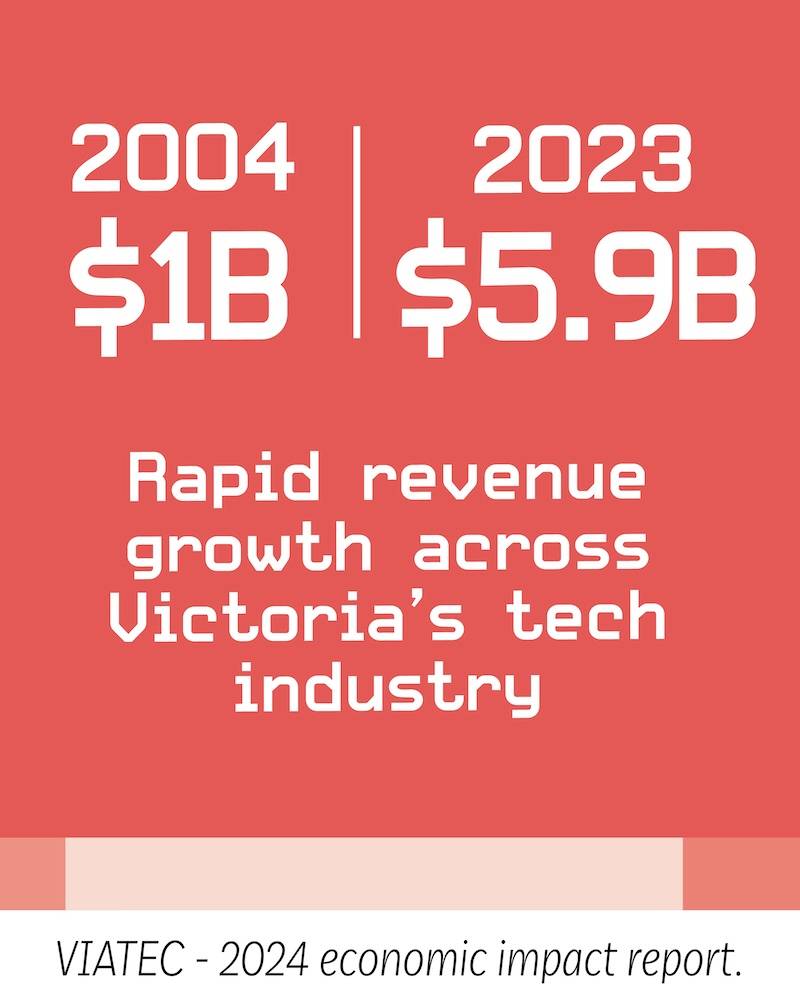
Behind the city’s historic facade and scenic backdrop, a handful of game-development companies are creating futuristic worlds played by millions around the globe. And with a brand-new tax incentive aimed at boosting interactive entertainment, the local gaming scene is in a position to advance to the next level. “A stronger incentive structure makes it easier to attract both companies and talent, ensuring B.C. remains a viable alternative to larger hubs,” says Tim Teh, CEO and cofounder of KANO Applications, an independent video-gaming company founded and headquartered in Victoria.
Press Start
Once considered a lazy pastime, video games are now the subject of box-office-smashing motion pictures, conferences with recordbreaking attendance and a culture that is mainstream business. They have become a cross-generational hobby that connects players around the world. In short, they are huge.
Gamers dive into epic adventures every day — from futuristic battlefields to medieval jousts or racing in the Grand Prix. Some of these thrilling experiences were created in our backyard, and our front yard, too. B.C. has been one of Canada’s top game development hubs, with major studios such as 2K, EA and Relic Entertainment located in Vancouver, alongside a thriving indie scene.
According to the Entertainment Software Association of Canada (ESAC), British Columbia is home to 161 video-game studios, supporting 8,700 jobs and contributing $1 billion to the economy annually.
Victoria has carved out its own niche in the industry. It’s been a longtime home to a number of studios, including Hololabs, KANO Applications, Codename Entertainment and Metalhead Software (acquired by EA in 2021), producing games for mobile, PC and console as well as virtual and augmented reality.
Game Mode
Victoria is a prime location for video-game development. The city offers a high quality of life, a supportive and connected business community and is strategically close to major tech hubs like Vancouver, Seattle and San Francisco.
It also benefits from a stream of graduates from the University of Victoria and Camosun College, both offering varying levels of computer science, game development, design and digital arts programs. This schoolto-industry connection has helped shape Victoria into a hub for development. But the barriers to drawing talent to Victoria include housing shortages and affordability. While some developers may love the lifestyle Vancouver Island offers, many are often drawn to bigger cities with more opportunities, making it challenging for Victoria-based companies to attract and retain skilled developers.
New Power-Ups
In March, the provincial government announced an increase to the interactive digital media tax credit (IDMTC) for companies that develop interactive digital media products such as video games, educational software, edutainment (a combo of education and entertainment) products and simulators. Starting September 1, eligible companies can claim a 25-per-cent tax credit — an increase from 17.5 per cent — for salary and wages incurred after August 31, 2025.
According to VIATEC’s 2024 economic impact report, Greater Victoria’s tech sector has seen rapid expansion, with revenues growing from $1 billion in 2004 to nearly $5.9 billion in 2023. Employment in the sector also increased from 16,775 in 2017 to over 20,000 in 2023, reflecting the industry’s strong momentum — one that extends to video-game development.

The hope with these increased tax incentives is that they may help the city attract more companies to the region and help studios attract talent. “We are a smaller market, but like all tech in Victoria, we are a tight-knit community of companies,” says Teh, who cofounded his company in 2008 and now employs more than 30 people across Canada.
“As relatively smaller developers competing in an industry that is projected to hit $186 billion in 2025, and with a global customer base, collaborating and information sharing has always been a much better strategy than being secretive and adversarial.” Teh says starting an independent gaming company in Victoria, far removed from tech hubs such as Silicon Valley and San Francisco, allowed the company to chart its own path. “We built a culture that prioritized sustainability, creativity and long-term thinking,” he says. “This has really helped us, especially in recent years with the shift from ‘growth at all costs’ to ‘profitable, sustainable growth.”
The introduction of a tax incentive for interactive digital media is hoped to fuel even more growth, making Victoria an increasingly attractive place for game developers to set up shop. But while our laid-back Island atmosphere may appeal to developers looking for better work-life balance, cash is still king. “I think any tech company working here on the Island has a challenge in attracting high-quality workers and staff,” says Mike Wozniewski, president of Hololabs.
“Competitive salaries are a challenge, especially for smaller businesses like ours, so this will definitely help offset that.” Wozniewski started Hololabs in 2011 in Montreal before moving headquarters to Victoria in 2015. Quebec, known as a major competitor for the tech sector, once offered a 37.5-per-cent multimedia tax credit. Wozniewski says that Montreal is also a bigger draw for talent because of the city’s size and culture. Vancouver is another tech community he competes with for talent and funding.
“One of our biggest problems is attracting the younger folks who typically prefer to be in cities like Vancouver,” he says. “We have to be able to attract them with salaries. Offering the beauty of the Island only goes so far. Salaries matter.”
The ESAC reported average annual salaries for Canadians in the video-game industry in 2024 ranged from $67,000 for a junior developer with less than two years of experience to $131,000 for a senior staffer with six-plus years of experience.
Victory Awaits
A key factor in attracting and retaining talent goes beyond salaries alone — it also involves creating an environment that encourages growth. Teh says that B.C. is already a strong contender in game development, but tax incentives will help level the playing field against provinces like Quebec, a leader in the gaming space.
In his case, he believes that Victoria’s lifestyle, combined with the company’s growth, has helped his company offer stable, long-term careers to employees. As a result, he’s been able to attract and retain talent in a competitive marketplace, but the increased incentive could provide more opportunities to invest in his staff and grow his team. “An increased tax credit directly impacts our hiring and expansion potential,” says Teh.
“It lowers the cost of talent acquisition and also allows us to continue to pay current team members competitively in a time when the cost of living is increasing. While it won’t single-handedly drive expansion, it certainly makes scaling more viable in a sustainable way.”
B.C.’s tech industry has seen rapid ups and downs, but Victoria seems to be taking a long-term approach. By creating conditions that promote business growth, attract talent and foster innovation, Victoria is ready to accept its next mighty quest.























